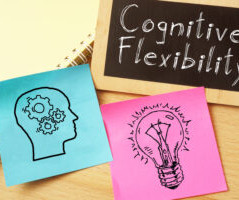CBT for Kids: How You Can Improve the Mental Health of Younger Clients
Relias
JUNE 22, 2023
Cognitive behavioral therapy (CBT) is one method that can help kids and teens in your community in need of mental health care get the attention they deserve. What is cognitive behavioral therapy (CBT)? CBT is generally short-term and goal-oriented, focusing on helping clients deal with specific problems.
















Let's personalize your content